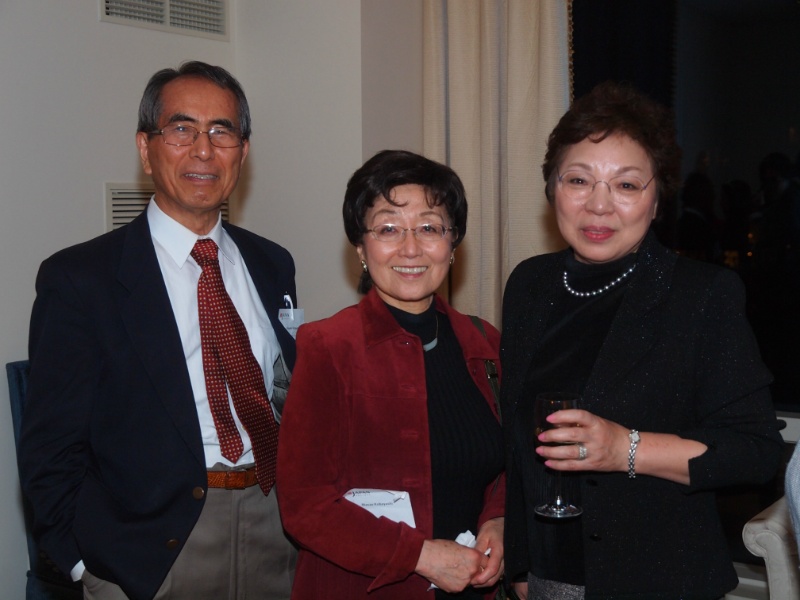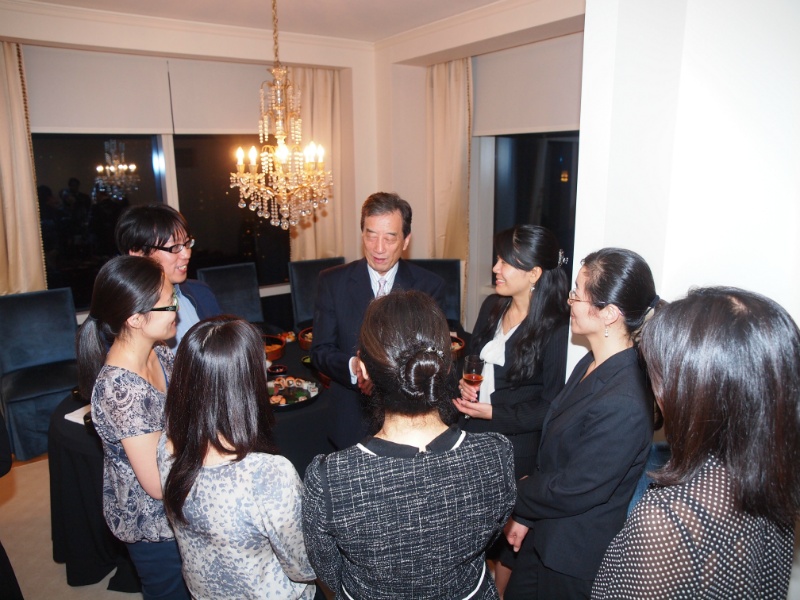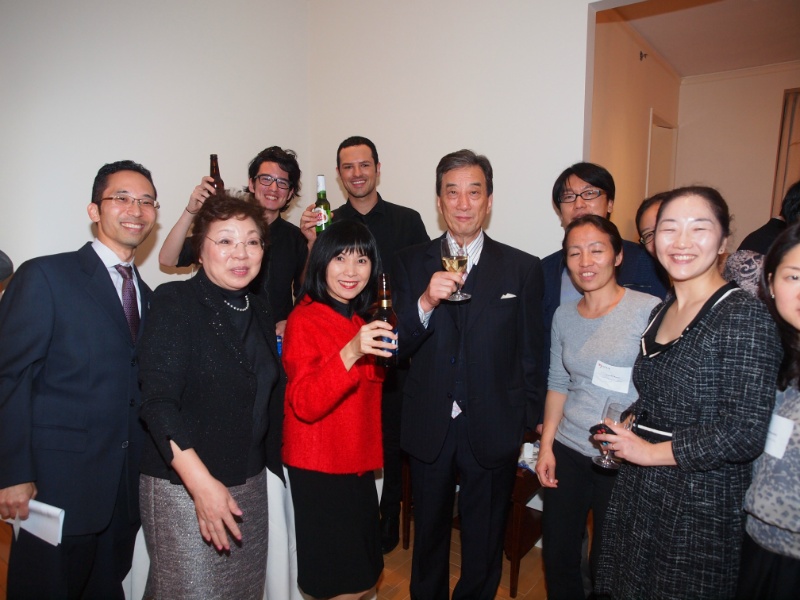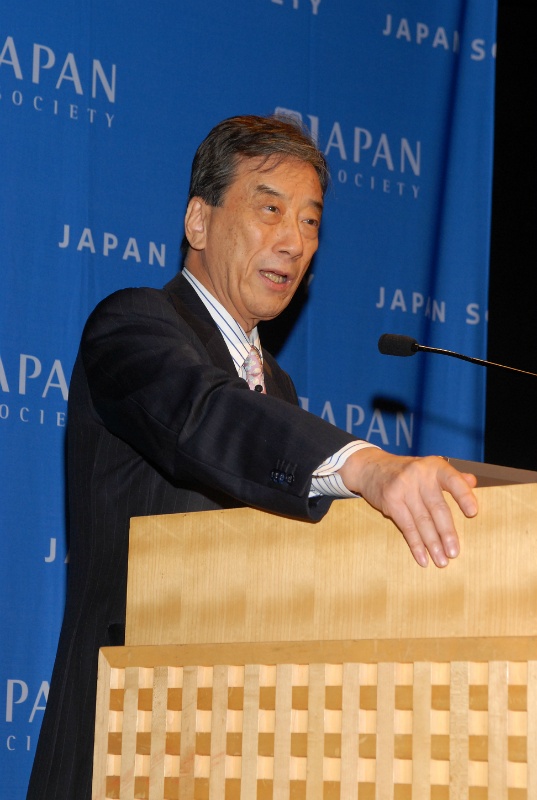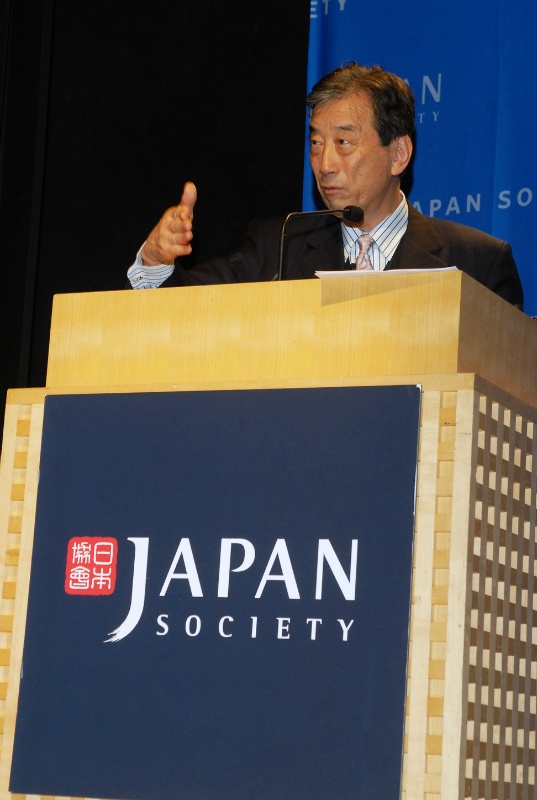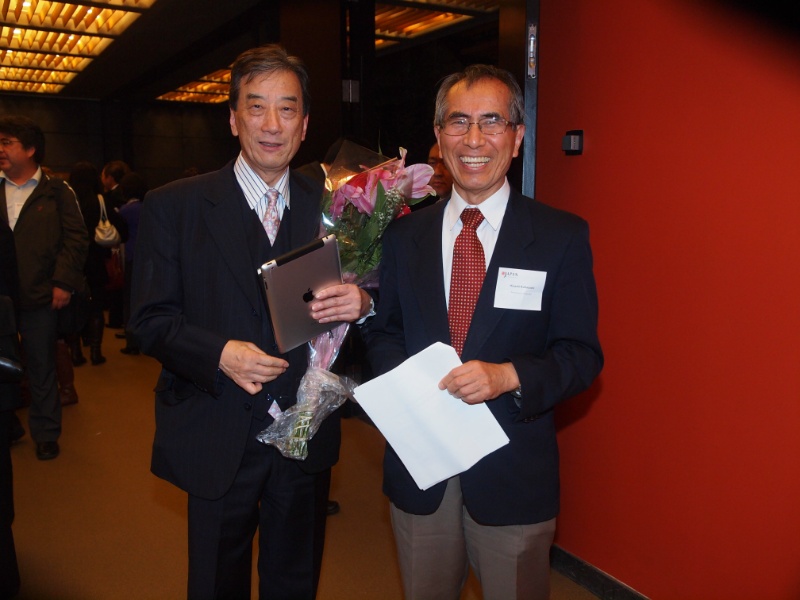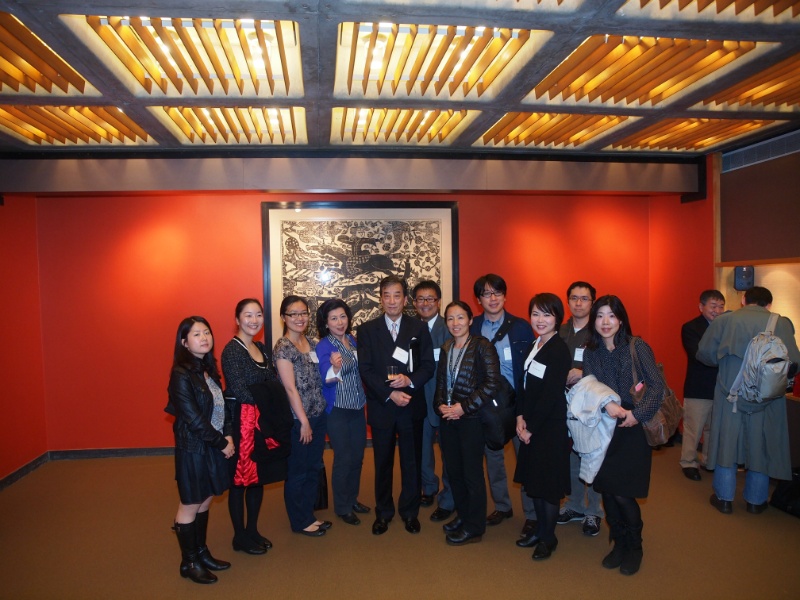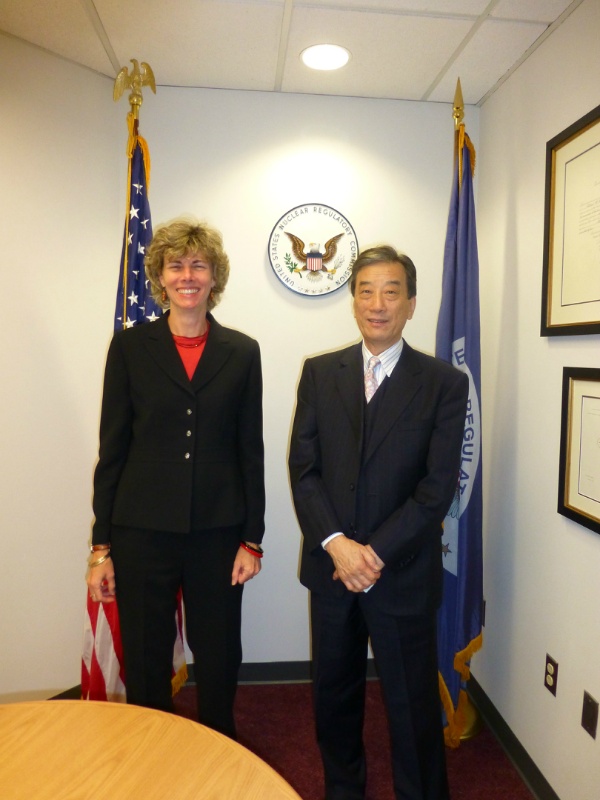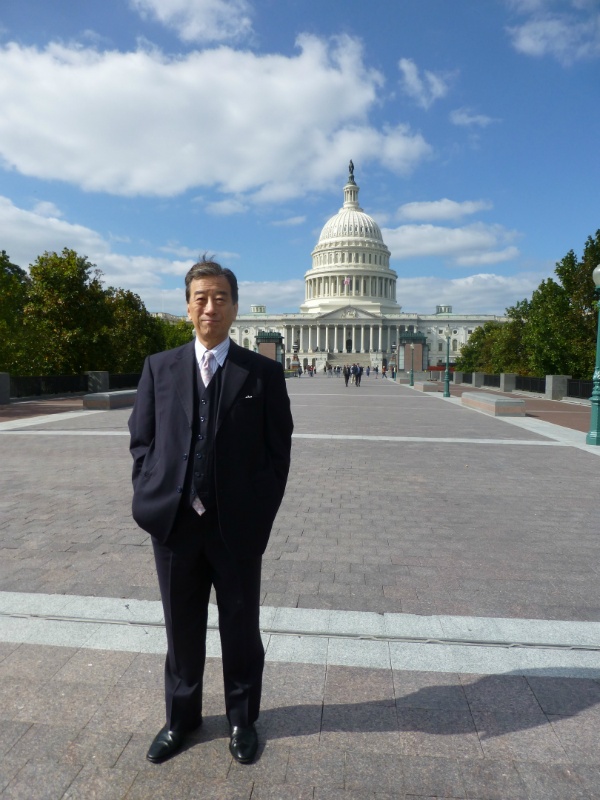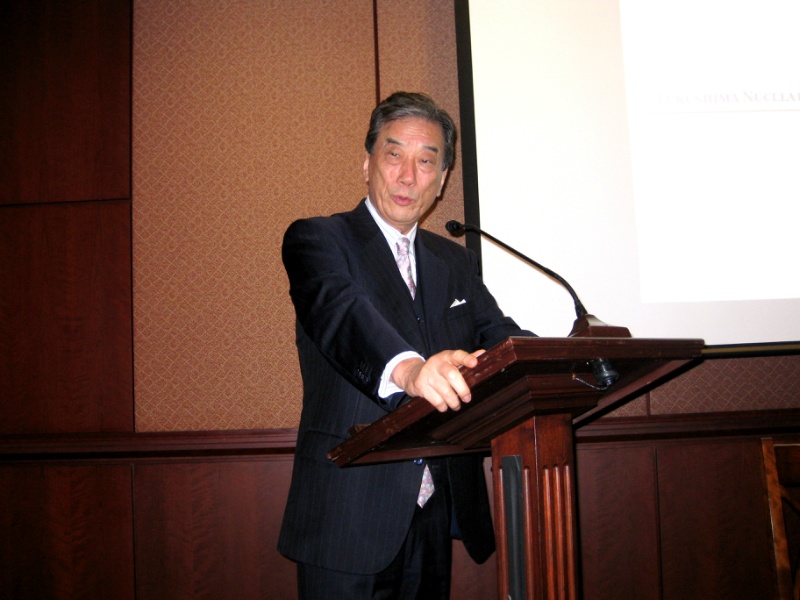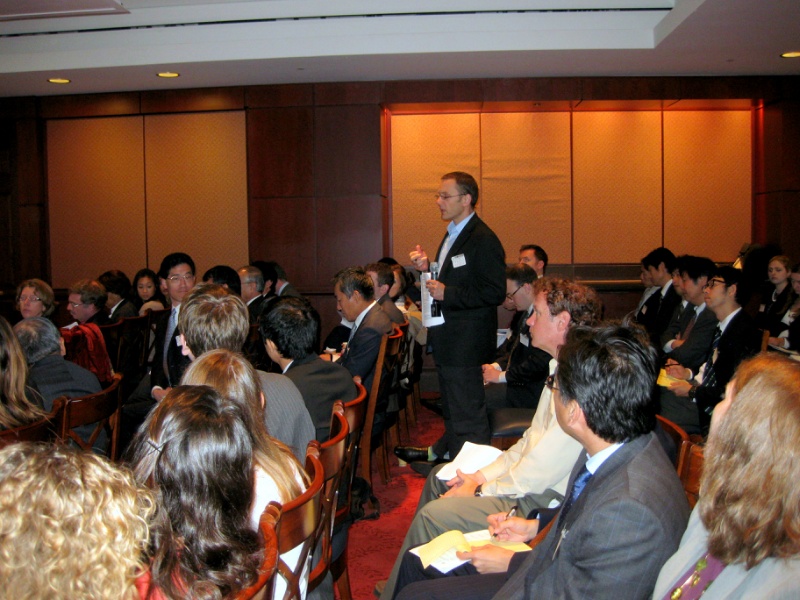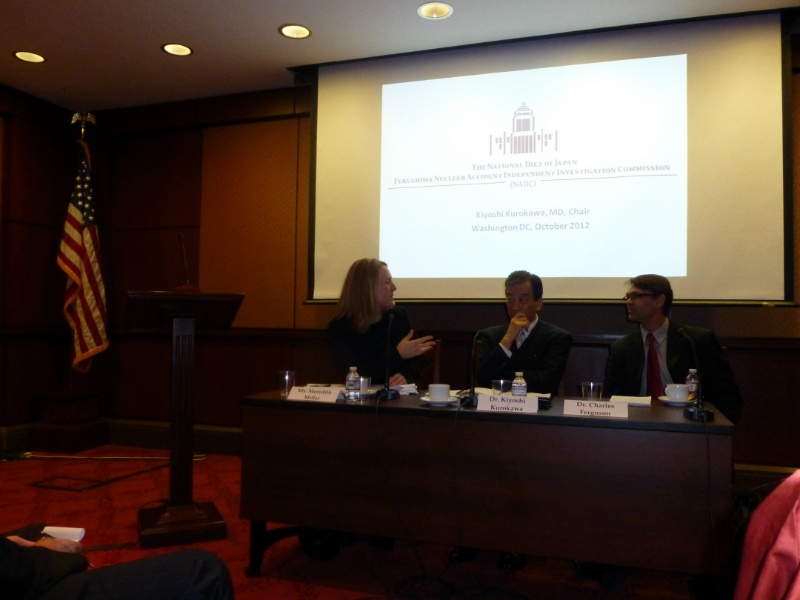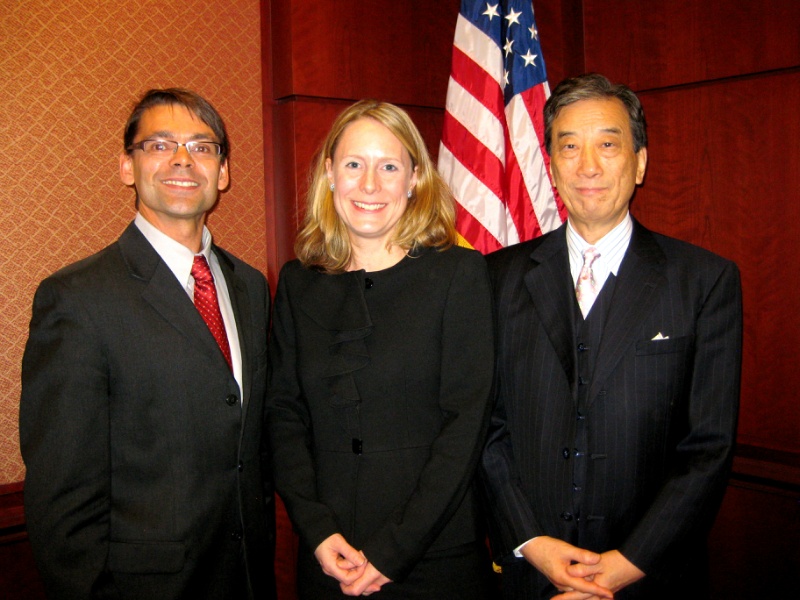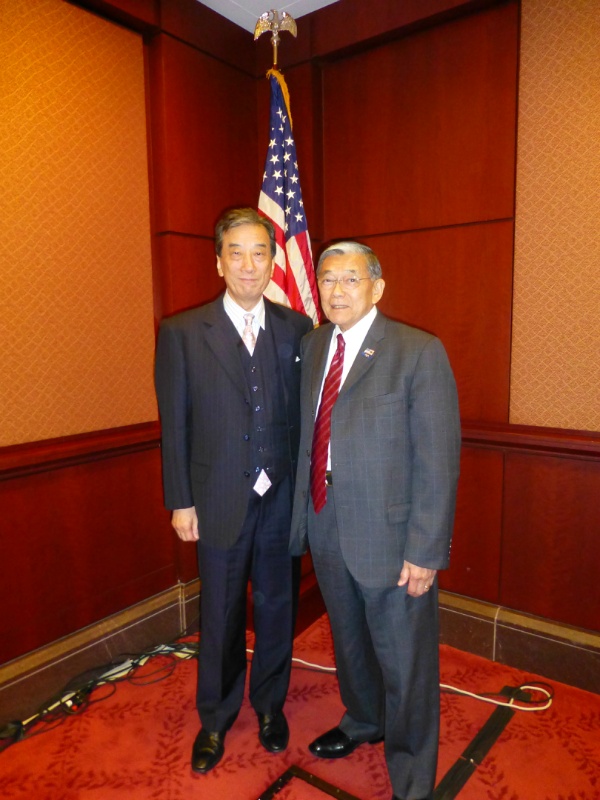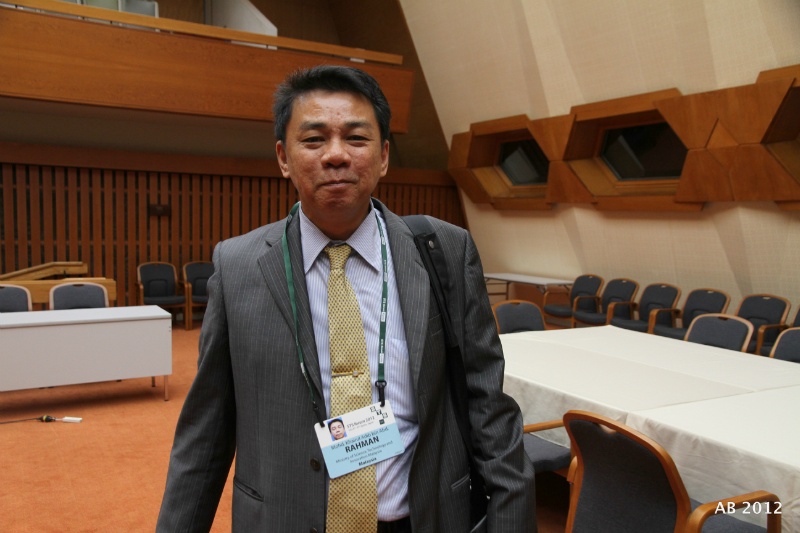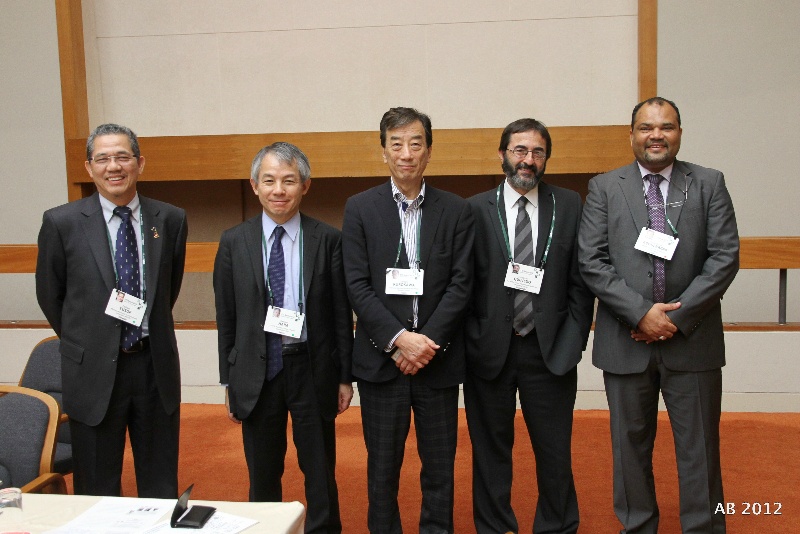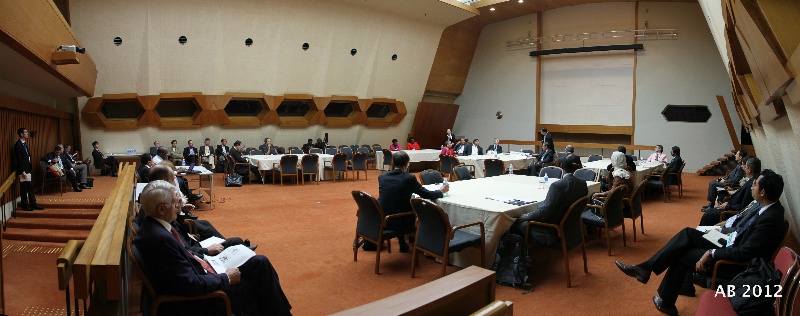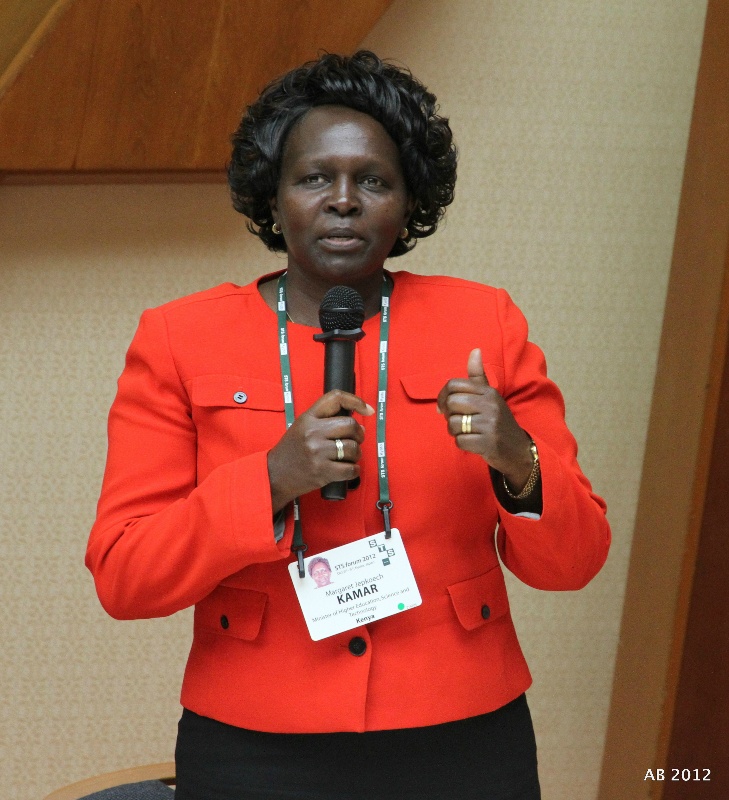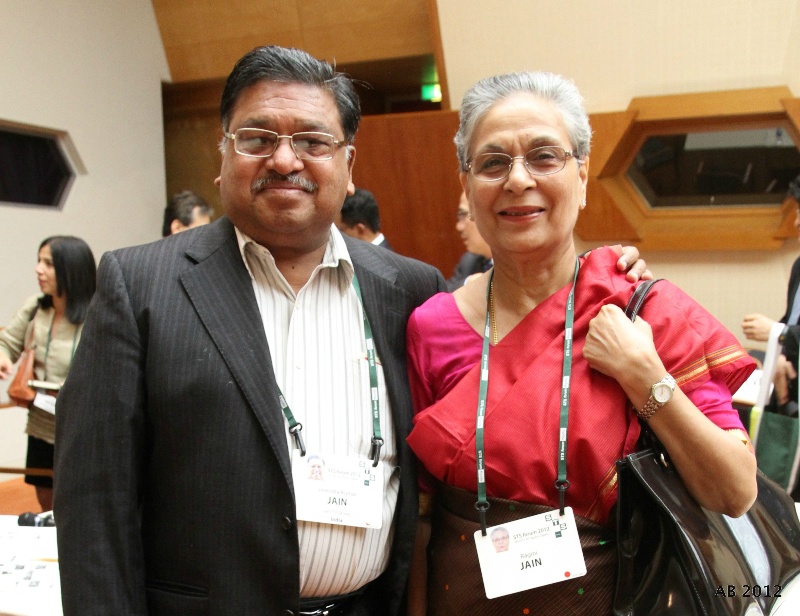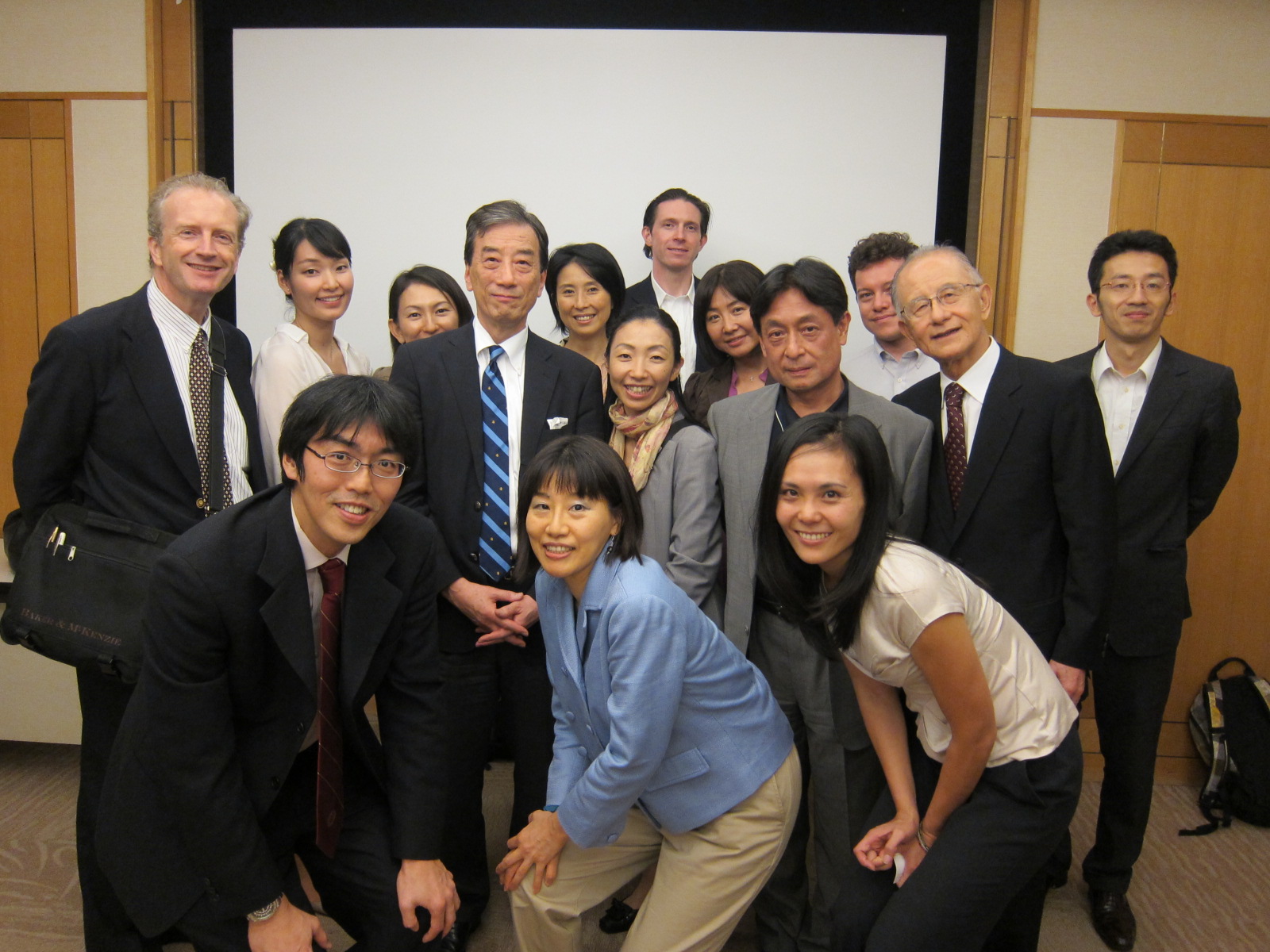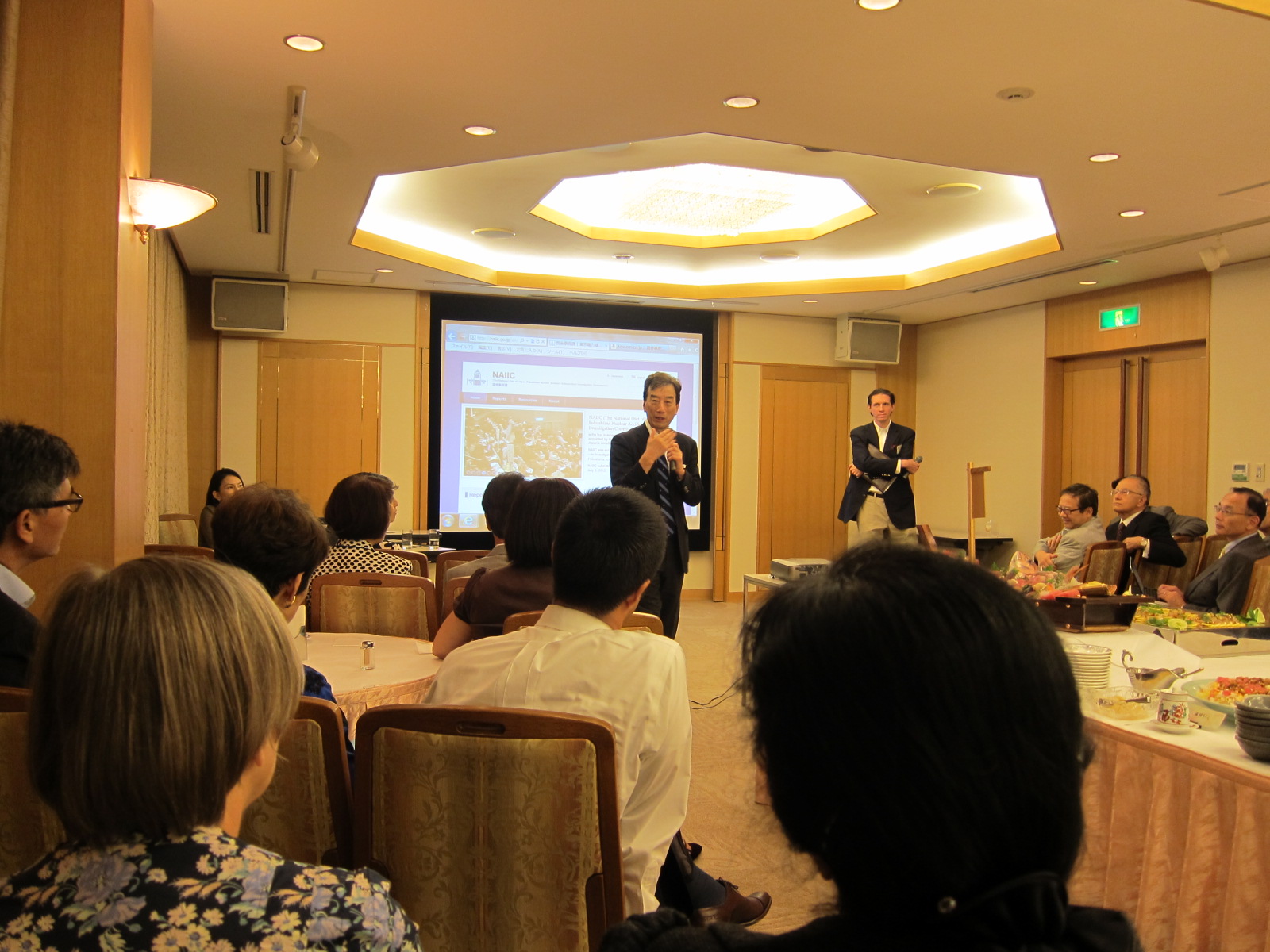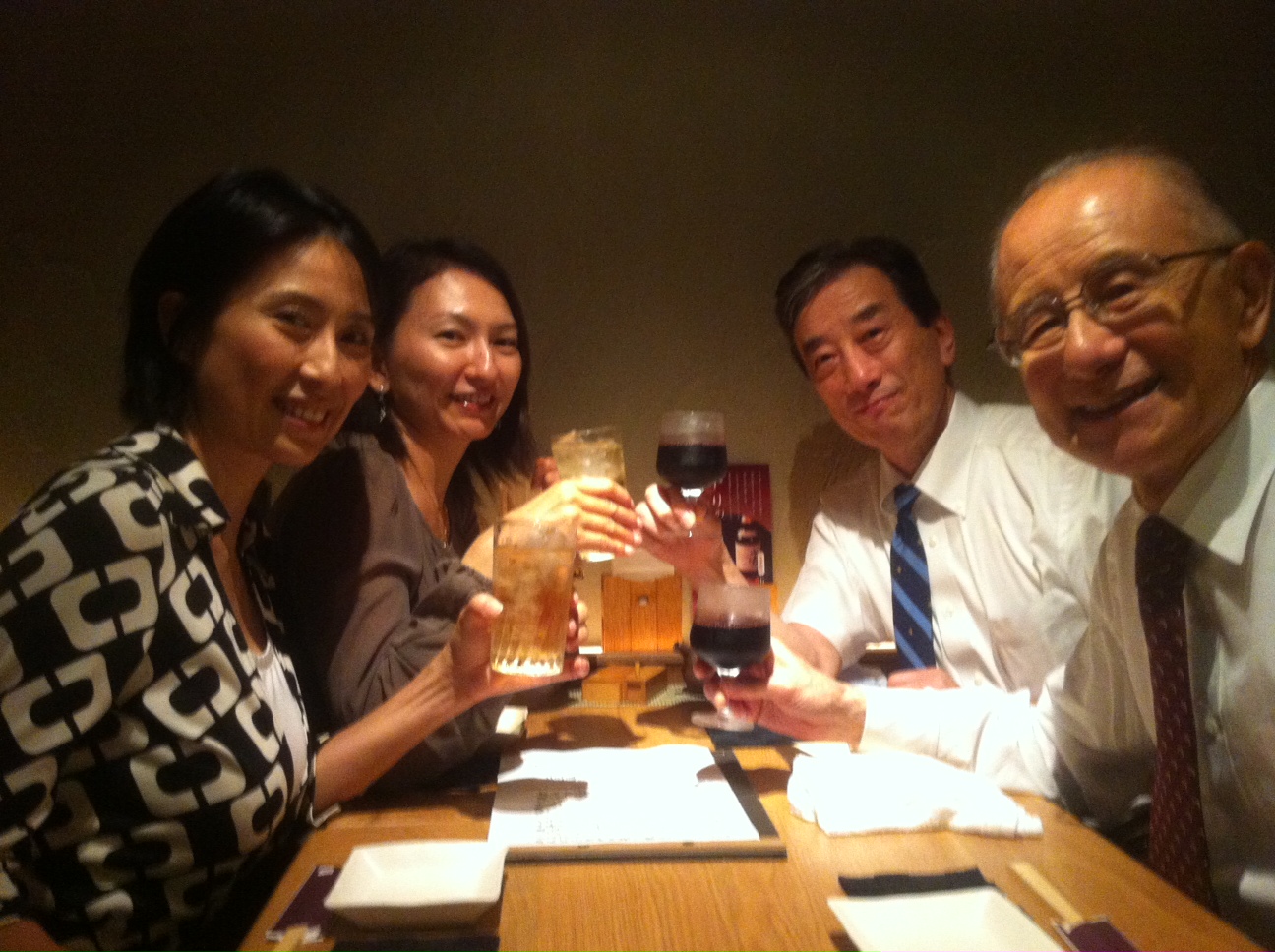→Japanese
The Harvard Club of Japan invited me to give a talk about the National Diet of Japan Fukushima Nuclear Accident Independent Investigation Commission (NAIIC). Approximately sixty people came, with about seventy to eighty percent being Japanese. Many of the Japanese people studied at the graduate school of Harvard, but there were also some who studied at the undergraduate college.
To my surprise, Professor Mike Yoshino, who is an Emeritus Professor at the Harvard Business School also came and gave a wonderful introduction for me. It was a very pleasant surprise. I have known Professor Yoshino for five or six years since we were together at the President Council at University of Tokyo and later at the meetings abroad in New York and Geneva.
After my talk, there was a lively question and answer session, which I enjoyed very much. Even after this, many people asked me questions and offered suggestions as well.
Later on, as the lively mood continued, I enjoyed drinks with Professor Yoshino and two of NAIIC’s Angels (as in Charlie’s Angels), and the four of us had a wonderful time.
After the next day, I received the following emails, (1) indirectly and (2)-(4) directly.
1) Thank you for arranging the presentation and introducing me to Kurokawa sensei. It was a great chance to hear his anecdotes and get a sense of his mission and perception of the issues. I was impressed with his compassion, integrity and sense of hope that things can change in Japan for the benefit of not the few but for the many. I hope he can continue, despite his age, to speak out and energize Japanese to get more involved in their affairs of the country.
2) Your presentation was titled Independent Commission on Fukushima, but its message was more broad. I believe you have some important transformational ideas as well as a healthy appreciation for the need to change. I hope the recommendation for an annual ( 3/11 ) event to measure progress will both cause action and help keep public engaged and knowledgeable.
3) I wish to take this opportunity for your most stimulating and thoughtful provoking presentation yesterday evening. Although I have read what is already available on the analysis and recommendations your commission has made, it is quite a different matter to directly hear your thoughts, commitment and above all your passion to the work of the Commission. It is indeed one of the blackest chapter in the history of Japan, but your presentation has clearly pointed out the opportunity to seize on the accident to change Japan.
Throughout the discussion period after your presentation, I have heard numerous comments from the audience that they found your presentation the best they have heard or read on this Fukushima accident.
I am also very encouraged that not only do you have further plans to publish your results in English but, you are going around the world to share your report to the interested and concerned audience.
4) I apologize for the lateness of this e-mail, but I just wanted to thank you and your team again for last week’s event.
Your insightful comments, presentation of the thinking and process that went into this report, and your far-reaching conclusions gave us all much to think about.
Having lived in Japan for much of the lost decade(s), I have heard the call “for change” many times from different quarters.
I personally think it is up to all of us who live and work here to do what we can in our own ways to build the foundations and environment for a new era in the society and history of Japan. Promoting connected-ness between individuals of like minds both domestically and overseas, sharing of information and an awareness and curiosity about new ideas and ways of doing things, and a spirit encouraging challenges to the status quo by those who have new ideas and new outlooks ? these are the traits that I think will help to bring renewed vigor and power to the people, society, and culture of Japan.
I believe I was able to successfully communicate and share the purpose of NAIIC.
I am quite busy everyday but every minute of today was fulfilling and enjoyable.

